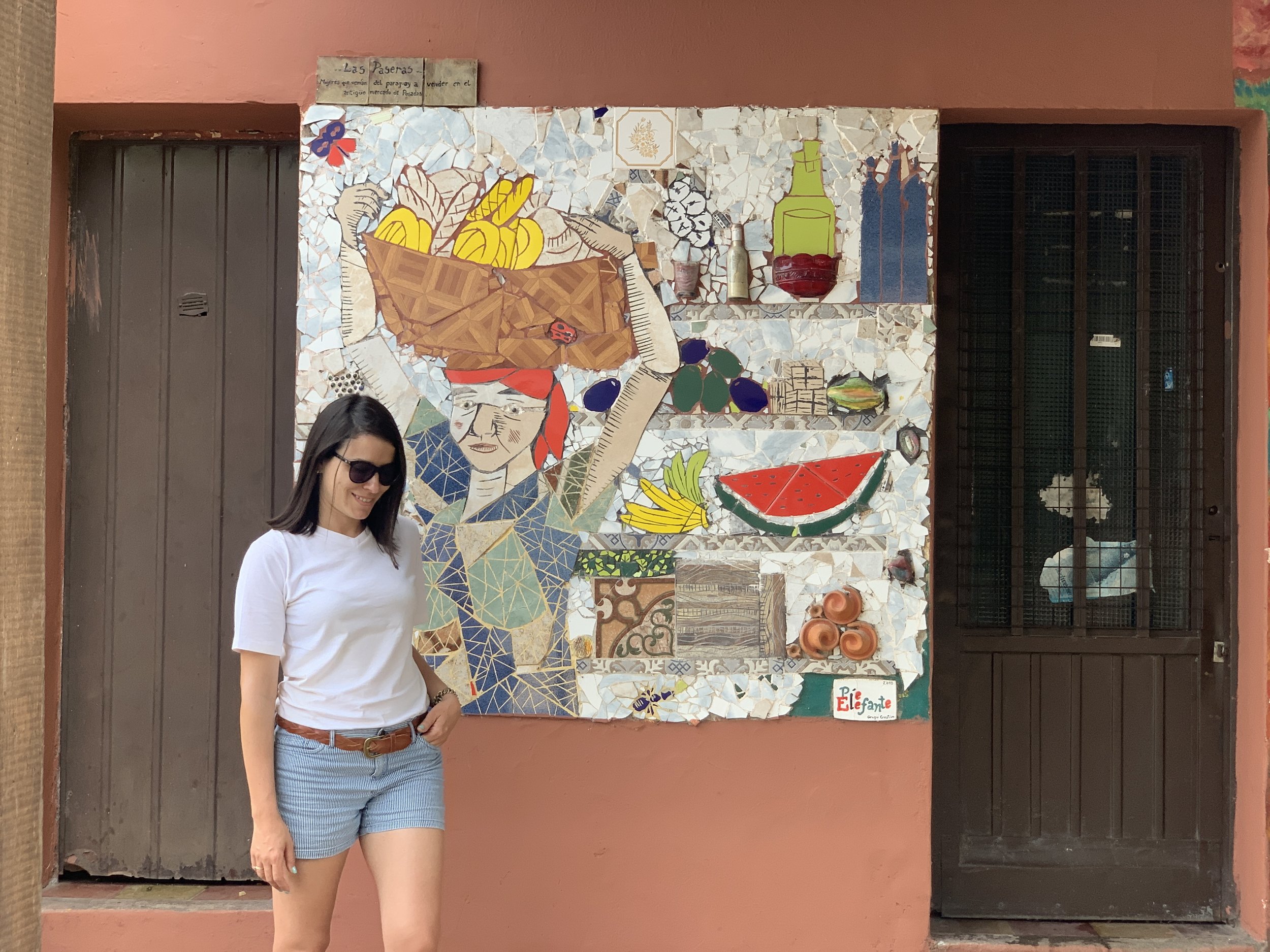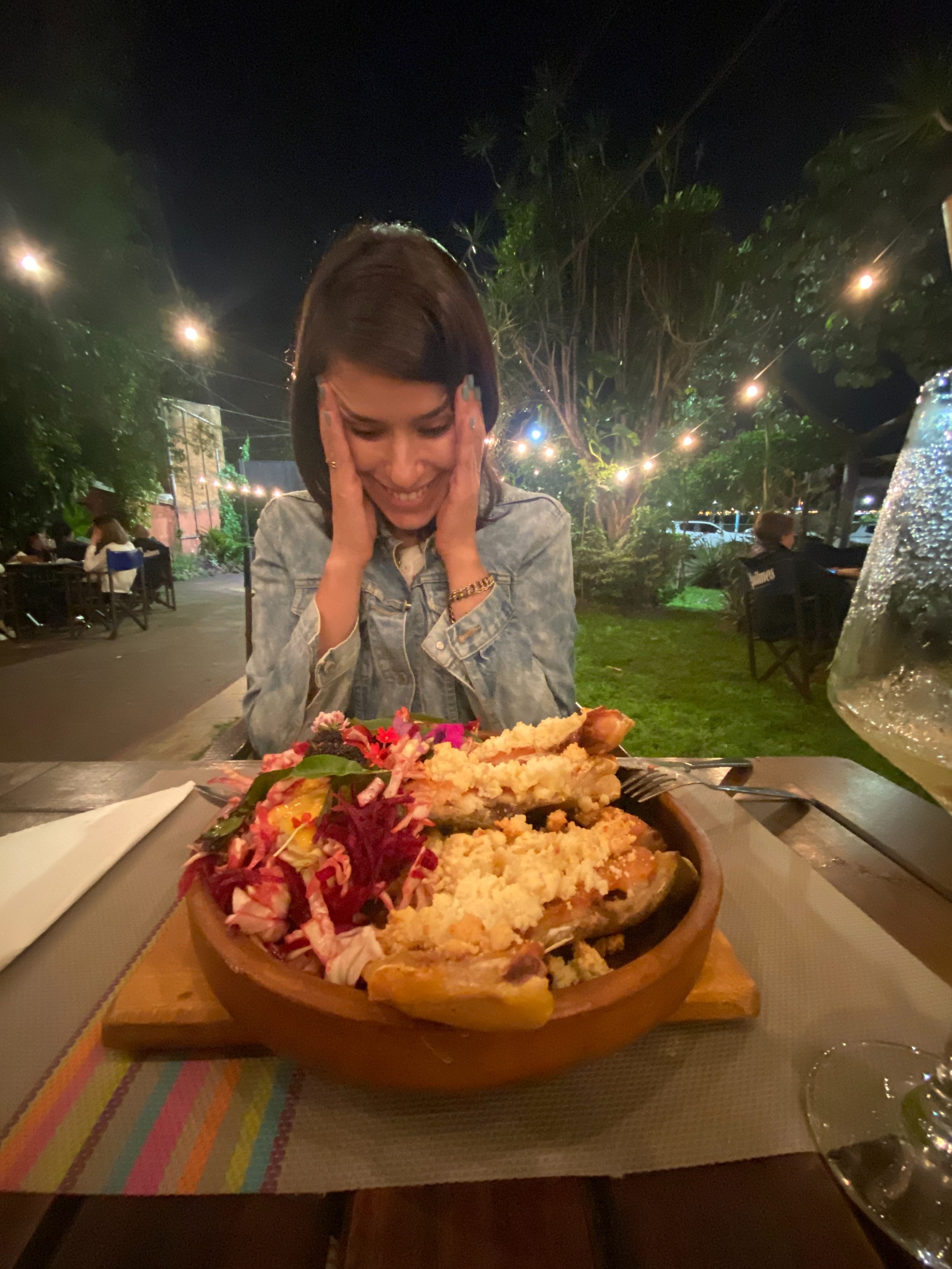Poytava
Misiones Cuisine In Posadas, capital of the Misiones province, we live a unique culinary experience.
Right in front of the Paraná River, at the end of Bajada Vieja, in the iconic neighborhood where every façade hosts a work of street art, is the iconic restaurant. The old houses are colorfully painted by artists whose creative works depict the history of the river and its people, in particular the Mensú, the rural worker. On the Paraná, the contemporary metal sculpture of Andresito Guacurarí honors the commander and leader who participated in the wars of independence.
Poytava is an ancient Guarani word that means that which gives sustenance, "yta" means column or pillar, the food for the Guarani is that which keeps us upright, that is to say, that which allows us to exist.
The proposals offered there are very difficult to describe, because more than a place to go to eat, it is an invitation to discover flavors that are not at all typical.
Saúl Lencina and Ángeles De Muro started years ago investigating the mushrooms that abound in the forests of Misiones. Later they revalued traditional dishes of the Guarani cuisine, such as the vorí vorí in chicken broth, their star dish that made them deserve the second place in a Baron B contest, in which the cuisine of El Nuevo Progreso, one of our favorites in the Quebrada de Humahuaca, was also highlighted.
We started the night at Poytava with their drinks, taking advantage of the happy hour. The first were a Jamaica Gin (gin macerated with roselle, tonic and roselle flower) and a Poytava Gin Tonic, served with native pepper, carambola and ka'are. Carambola is a star-shaped fruit and ka'are is an aromatic plant. Appetizers at this restaurant are decorated with flowers and picturesquely served with tacuara sorbet.
To start the feast, Mandi'o kesu, a superb hot clay casserole with fried manioc bathed in a succulent cheese sauce with cedron and edible flowers: margarita punzó, common margarita and wild petunia.
We then honored the chef's choice by opting for the vorí vorí, a soup of corn flour dumplings cooked in a vigorous chicken broth, also with long-leaf cedron and wild peppers (aguaribay, pink pepper and sweet molle pepper). And we also tried the local surubí en croute de m'bejú accompanied by a salad from the garden, which included blackberries and, of course, edible flowers.
All new and original flavors, totally unknown to our palates. A true culinary experience.
The abundant dishes served did not allow us to get to the sweets, but we did repeat a round of drinks. An exquisite tereré caipirinha, with sernova vodka macerated in yerba mate, plus a citric bitter with burnt mate foam, and a great rosemary gin and tonic, with quinotos, tonic and fresh flowers.
Poytava is, in short, a very rare experience. More than a place to dine, it is a place of culinary experimentation, to such an extent that it is not very well known even among the locals, who, when we asked them about this restaurant, did not know what it was all about.
They are exotic proposals, typical of an experimental haute cuisine, but which basically aims to revalue local ingredients and recipes. The result is that it really enhances them. Poytava is, in short, a must in Argentinean gastronomy.


























